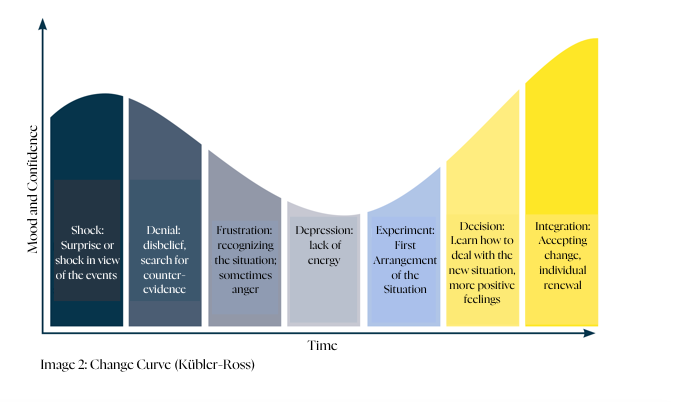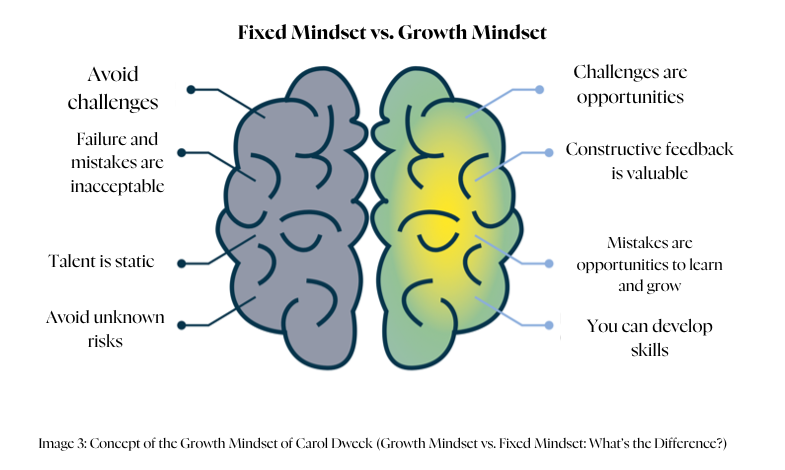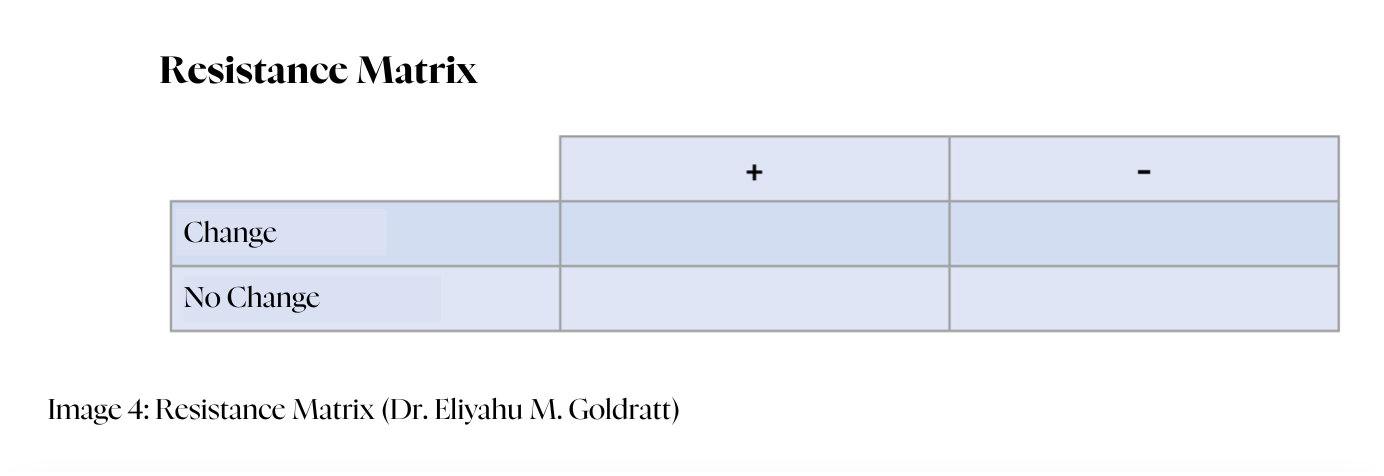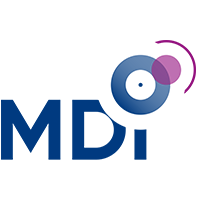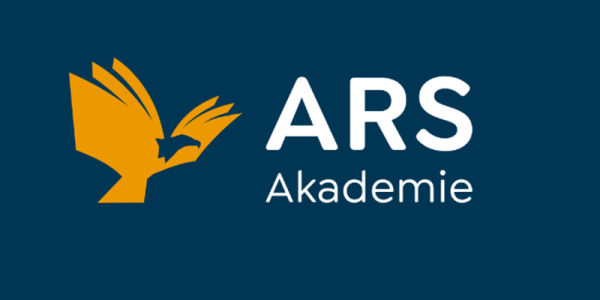
Leadership and AI: Between Responsibility and Opportunity
Leadership and AI: Between Responsibility and Opportunity
Do you prefer to listen to this article? Click below to access our AI-generated audio version!
Leadership and AI: Between responsibility and opportunity
Artificial intelligence is no longer a pipe dream – it is changing our working world here and now. It is about much more than technology: it is about attitude. How do we want to lead when machines think for themselves? How do we provide orientation when uncertainty is becoming the new constant?
Trust instead of fear
Many leaders worry about being replaced by AI. But this fear is rarely justified. Julie Sweet, CEO of Accenture, says that not a single one of her client companies plans to replace employees with AI. On the contrary – the technology is intended to relieve, not displace.
An international study of over 4,000 executives shows that the majority see AI as an opportunity for efficiency, better decision-making, and higher quality of collaboration. At the same time, there is often a lack of know-how, courage, and a clear strategy to truly leverage this potential.
This is where leaders are called upon to take responsibility – not in the future, but now. After all, we cannot outsource technological developments. We are challenged to recognize the opportunities of AI – and to boldly break new ground.
Beyond Efficiency – How AI Can Make Leadership Better
AI is often reduced to speed, cost-cutting, and automation. But its true value lies in enhancing quality: helping us to act more strategically, communicate more clearly, lead more reflectively, and master complexity.
Artificial Intelligence does not replace leadership – it enhances and empowers it. When used wisely, it strengthens human connection, creates space for meaningful work and reflection – all the things that define modern leadership.

Three Levels Where AI Strengthens Leadership
1. Individual Level
Through AI, leaders gain time by automating tasks like text generation, research, or translation. This frees up space for strategic thinking, personal development, and effective leadership.
2. Team Level
AI-powered tools improve collaboration and communication through feedback systems, knowledge platforms, and digital simulations. Meetings become more structured, decisions more grounded.
3. Organizational Level
Data-driven decisions, automated processes, and innovation impulses – AI enables organizations to become adaptive and learning-driven. Leadership becomes a catalyst for true transformation.
Technology Is Not Enough – Values Remain Central
The more algorithms become part of our everyday lives, the more crucial human qualities become: empathy, responsibility, and ethical orientation. Good leadership remains human where it matters – wherever decisions impact people.
The use of AI brings new questions: What should be automated – and what must remain human? Which values must be preserved? Leadership today means finding clear answers and demonstrating authentic values.
At the same time, even though empathy itself can’t be programmed, AI can sometimes appear more patient or neutral than humans. What matters is not what AI can do theoretically, but how we shape and use it.
Leading today means creating spaces for experimentation, encouraging reflection, and integrating technology responsibly, not out of tech enthusiasm, but because we want to shape the future.
Learning as a Leadership Mandate – Rethought with AI
Judith Marks, CEO of Otis, summed it up: Leadership means setting a strategic direction while continuously learning. This is precisely where AI can unlock enormous potential.
What many e-learning platforms have long promised, AI can finally deliver: individualized, flexible, and needs-based learning – anytime, anywhere. Learning paths adapt dynamically, and feedback is delivered in real-time.
Especially when it comes to building soft skills – like conversation techniques, feedback, or conflict management – AI is a powerful enabler. Intelligent simulations react live, reflect real-world challenges, and promote sustainable development.
At MDI, we actively use this technology in leadership training, especially for interactive roleplays designed to strengthen leadership skills. Participants receive direct, situation-based feedback, boosting their effectiveness through repetition and practice.

Why the Big Breakthrough Is Still Pending
Despite positive attitudes, studies show that only 13% of companies report a tangible AI impact. Why is that?
One key factor: Trust. Julie Sweet distinguishes two dimensions:
-
Functional trust: Does the technology work reliably? Built through usage, experience, and good change management.
-
Emotional trust: Will AI take away my job? Will it diminish my role?
It’s often emotional trust that becomes the stumbling block. Yet history shows: change has always been a constant in the labor market. 80% of today’s jobs didn’t exist 100 years ago.
Thus, the real question is not: “What will AI take from me?” but rather: “What can it give me – and what will I make of it?” This is where modern leadership truly begins: by driving a shift in perspective.
First Steps – How Leaders Can Get Started
1. Experiment yourself: Try tools like ChatGPT for everyday tasks. Build realistic familiarity.
2. Communicate openly: Share your experiences and uncertainties. It builds trust.
3. Enable experimentation: Encourage your team to try new tools. Build a culture of learning.
4. Discuss ethics: What can and should be automated? What must remain human?
5. Identify potentials: Where along the value chain can AI create real added value?
6. Lead by example: Show authentic values, use AI thoughtfully, and actively shape the future.
Conclusion: Future-Proof Leadership Combines Humanity and Technology
AI is not a threat nor a miracle cure – it is a tool. How we use it will determine its value.
If we recognize Artificial Intelligence as an opportunity to make our work more meaningful, our communication clearer, and our decisions more sound, we create a new kind of leadership – one that unites technology and humanity. For greater impact, greater purpose, and a stronger future.

Marina Begic
Head of Business Development – Digital Transformation Driver
Marina has been working on new, effective learning methods and the future of corporate learning for over 15 years. In her current role, she is responsible for Digital Business Development at MDI, where her focus is not driven by the current buzzwords, but primarily on the feasibility of digital transformation for clients such as Erste Group, Lenzing, Semperit, Deutsche Bahn, Andritz AG, Uniqa, Mayr-Melnhof, Frequentis, RHIM. Her greatest strength is bringing loose ends together, which she impressively demonstrates time and time again with her big picture view and multi-dimensional approach. Her greatest passion is to provide learners not only with an experience, but also with real, lasting value for their real challenges.



